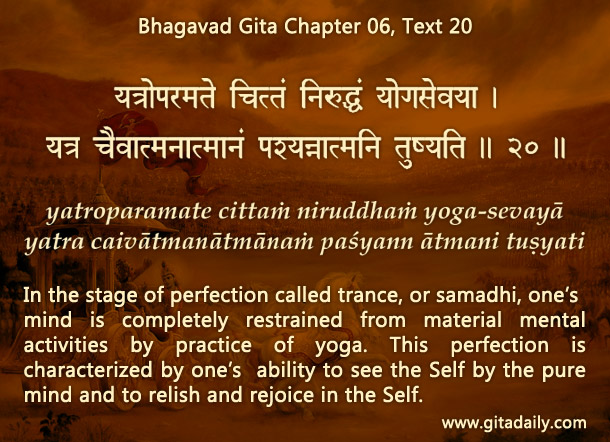Suppose a cosmonaut is in a spacecraft that has a window for seeing outside but is pitch-dark inside.
Similar is our present position. We are spiritual beings encased in material bodies. The body’s five senses collect information from the outer world. These sensory inputs don’t come directly to us, however – they are routed to the mind, which integrates and displays them for us. Thus, the mind acts as our window to the world.
Among the objects displayed by the window-like mind, some catch our fancy. And we pursue them, thus hurtling about in material existence. Through it all, our inner landscape stays shrouded in darkness – we remain unaware of who we actually are.
For us to realize our identity, the mind, which presently functions as a window, needs to instead function as a mirror. Of course, even now the mind sometimes acts as a mirror, just as a glass window sometimes gives a faint reflection. Significantly however, the mind’s mirror is not only faint but also distorted – it reflects us as we are seen by the world, not as we actually are. To get an accurate reflection from the mind, we need to cleanse it, removing the worldly impressions that distort our self-conception.
Cleansing the mind is the essence of the practice of yoga. The Bhagavad-gita (06.20) states that sustained yoga practice causes the material movements of the mind to stop, thereby making it pacified and purified. When pacified, the mind doesn’t get unduly excited about sensory inputs. Thus, it stops functioning as a window that glues our attention to the outer world. And when purified, it reflects the soul in its true glory, as a blissful part of the supremely blissful whole.
When our inner landscape becomes thus illumined, we realize and relish our true self.
To know more about this verse, please click on the image
Explanation of article:

Podcast:


Fantastic. Pranaam and anek Dhanyavaad
Very clear and lucid explanation
without BHAKTI ,OUR INNER MIND CAN NOT BE ILLUMINATED